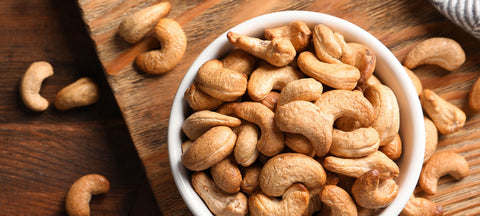In our quest for a healthier lifestyle and the desire to manage our weight, artificial sweeteners have become a ubiquitous presence in our diets. These low-calorie sugar substitutes promise the sweet taste without the caloric consequences, making them a tempting choice for those seeking to cut back on sugar. However, beneath their seemingly innocent allure, artificial sweeteners harbor a host of potential health risks. In this article, we will explore the hidden dangers of artificial sweeteners and their potential impact on our well-being.
Weight Gain and Increased Cravings
Ironically, one of the primary reasons people turn to artificial sweeteners is to lose or maintain their weight. However, several studies have suggested that artificial sweeteners may actually lead to weight gain rather than weight loss. The consumption of artificial sweeteners can disrupt the body's natural ability to regulate calorie intake, as they may fail to satisfy the brain's reward centers, leading to increased cravings for sweeter and higher-calorie foods.
Metabolic Disturbances
Artificial sweeteners can wreak havoc on your metabolism. When you consume these sweeteners, your body expects to receive calories, but when it doesn't, it can confuse your metabolic processes. This confusion may lead to disruptions in glucose metabolism, insulin sensitivity, and even contribute to the development of metabolic syndrome, a cluster of conditions that increase the risk of heart disease, stroke, and type 2 diabetes.
Altered Gut Microbiome
Emerging research has uncovered a connection between artificial sweeteners and disturbances in the gut microbiome. The gut microbiome plays a crucial role in various aspects of our health, including digestion, immune system function, and metabolism. Artificial sweeteners may disrupt the balance of beneficial and harmful bacteria in the gut, potentially leading to digestive issues, inflammation, and a compromised immune system.
Increased Risk of Type 2 Diabetes
Artificial sweeteners were originally developed to help people with diabetes enjoy sweet-tasting foods without affecting their blood sugar levels. However, recent studies have raised concerns about their potential role in increasing the risk of developing type 2 diabetes. Artificial sweeteners may interfere with insulin sensitivity and glucose tolerance, contributing to the very condition they were meant to mitigate.
Appetite Dysregulation
The consumption of artificial sweeteners may disrupt the body's natural appetite-regulating mechanisms. Some studies suggest that these sweeteners can lead to overeating, as they can confuse the brain by providing a sweet taste without the expected calories. This can result in increased food intake, ultimately contributing to weight gain and other health issues.
Cardiovascular Risks
Several studies have associated artificial sweeteners with an increased risk of heart disease and other cardiovascular problems. While the exact mechanisms are still under investigation, it is believed that these sweeteners can negatively affect blood pressure, lead to weight gain, and cause metabolic disturbances that collectively raise the risk of heart-related issues.
Neurological Concerns
Artificial sweeteners like aspartame and saccharin have been linked to potential neurological concerns, including headaches, migraines, and other adverse effects on brain health. While the evidence is inconclusive, individuals who are sensitive to these compounds may experience unpleasant symptoms.
Prenatal and Childhood Risks
Pregnant women should be particularly cautious when it comes to artificial sweeteners. Some research suggests that excessive consumption during pregnancy may impact fetal development and increase the risk of childhood obesity and metabolic issues in offspring.
In Conclusion, while artificial sweeteners may seem like a convenient alternative to sugar, their potential dangers to our health should not be ignored. The scientific evidence suggests that artificial sweeteners can lead to weight gain, metabolic disturbances, an altered gut microbiome, and an increased risk of various health issues, including type 2 diabetes and heart disease. Additionally, they may disrupt appetite regulation and raise concerns about their impact on neurological and developmental health.
At Raw & Lovely, we never use artificial sweeteners or refined sugar in any of our cakes or desserts. As consumers, it is essential to be informed about the potential risks associated with artificial sweeteners. If you're looking to reduce your sugar intake, consider exploring more natural alternatives, or moderation in sugar consumption. Always consult with a healthcare professional before making significant changes to your diet, especially if you have specific health concerns or conditions that may be affected by artificial sweeteners. In the pursuit of a healthier lifestyle, knowledge is your most potent weapon against the hidden dangers that may lurk within seemingly harmless choices.



